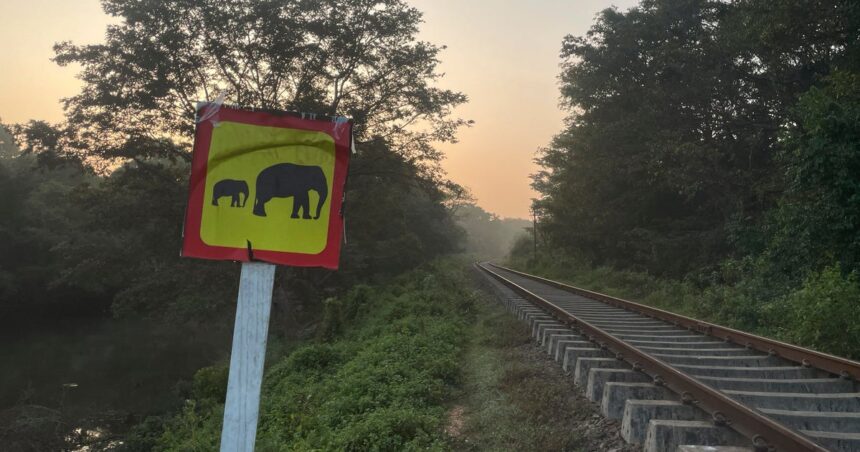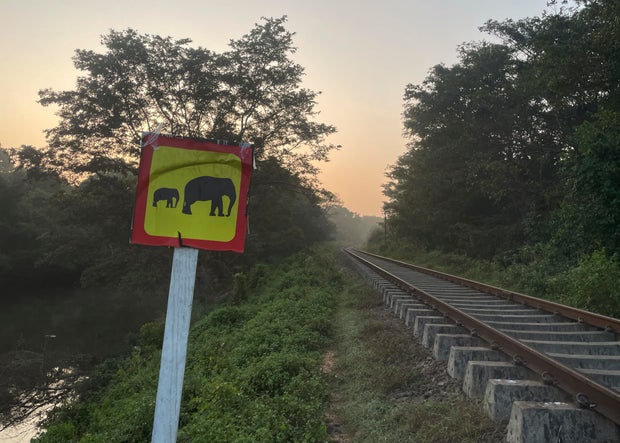Colombo – A Sri Lank Express train killed an elephant and was derailed on Tuesday despite the security measures introduced after the worst railway accident of the country’s wildlife three months ago on the same route. The local authorities said that the young wild elephant who crossed the track near Habarana was hit by the same train involved in the February 20 accident that killed seven elephants. After that accident, the officials imposed speed limits on the trains that pass through the elephant habitats.
No passenger were injured in the accident, which occurred to about 110 miles by road to the east of the capital of Colombo.
The railway authorities said an investigation was underway, and the engineers were trying to put the Colombian-Batticaloa train back on the road after the accident prior to dawn.
The authorities had previously announced changes to train schedules and efforts to eliminate the bushes from both sides of the road to improve the visibility of drivers, to give them more to avoid hitting elephants.
Wild life officials have said that 139 elephants have been killed by trains in the last 17 years, since the authorities supply to collect such data.
Priyan Malinda/AP
The Government has also announced that 1,195 people and 3,484 elephants have killed in the last decade due to the human elephant conflict and work on the island.
Killing or damaging elephants is a criminal crime in Sri Lanka, which has approximately 7,000 wild elephants, considered a national treasure, partly due to its importance in Buddhist culture.
However, the murders continue, as desperate farmers fight with elephants assaulting their crops and destroying livelihoods.
Many elephants have been electrocuted, fired or poisoned. Some
India, which has a population of wild elephants more than double large than Sri Lanka, also deals with Train-Patermo collisions. India has lost around 200 elephants in the last decade to train accidents alone, and that is also a large number of deaths from poaching and accidental electrocutions.
The Indian government has introduced measures to limit train speeds in dedicated elephant corridors, but activists say the rules are often poorly applied.
Earlier this year, the state of Tamil Nadu in southern India became the first to launch an artificial intelligence surveillance system and automatic learning to help prevent deaths from elephants on the railroads.









